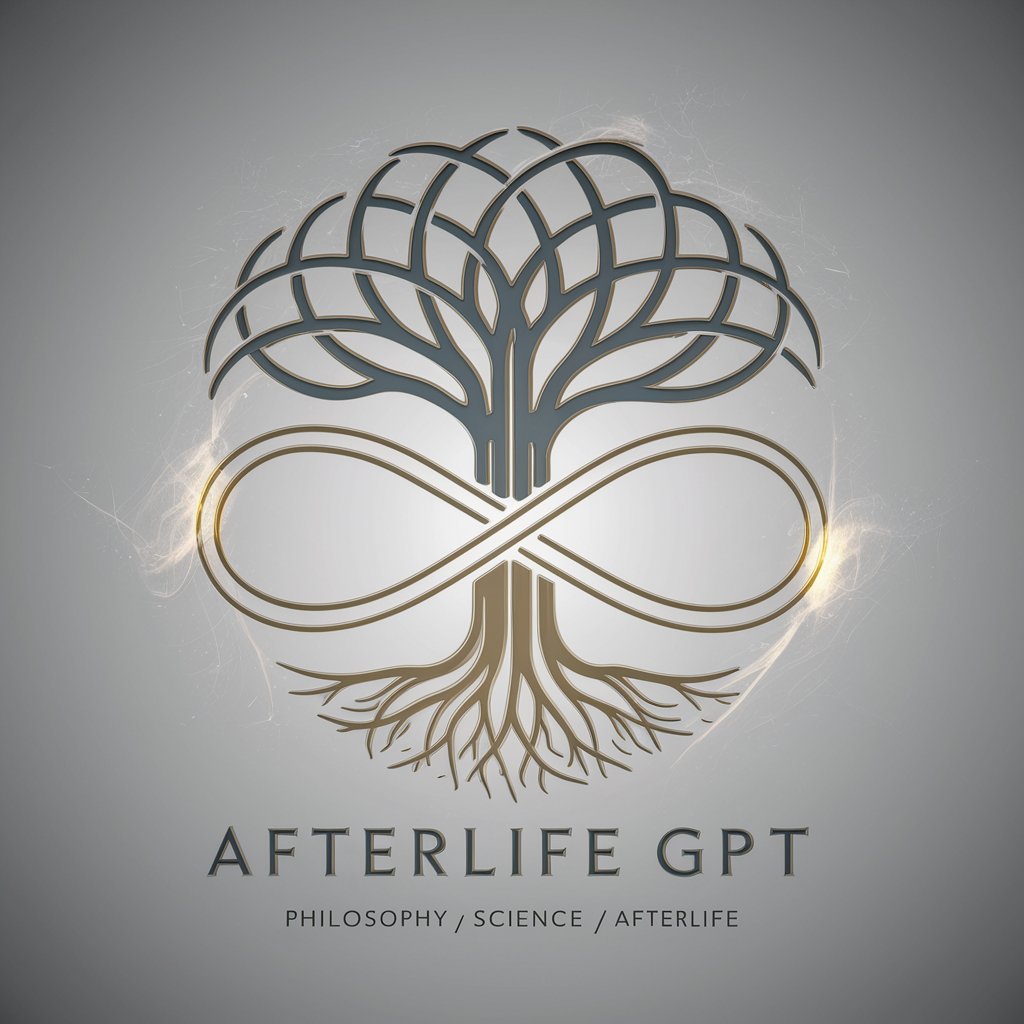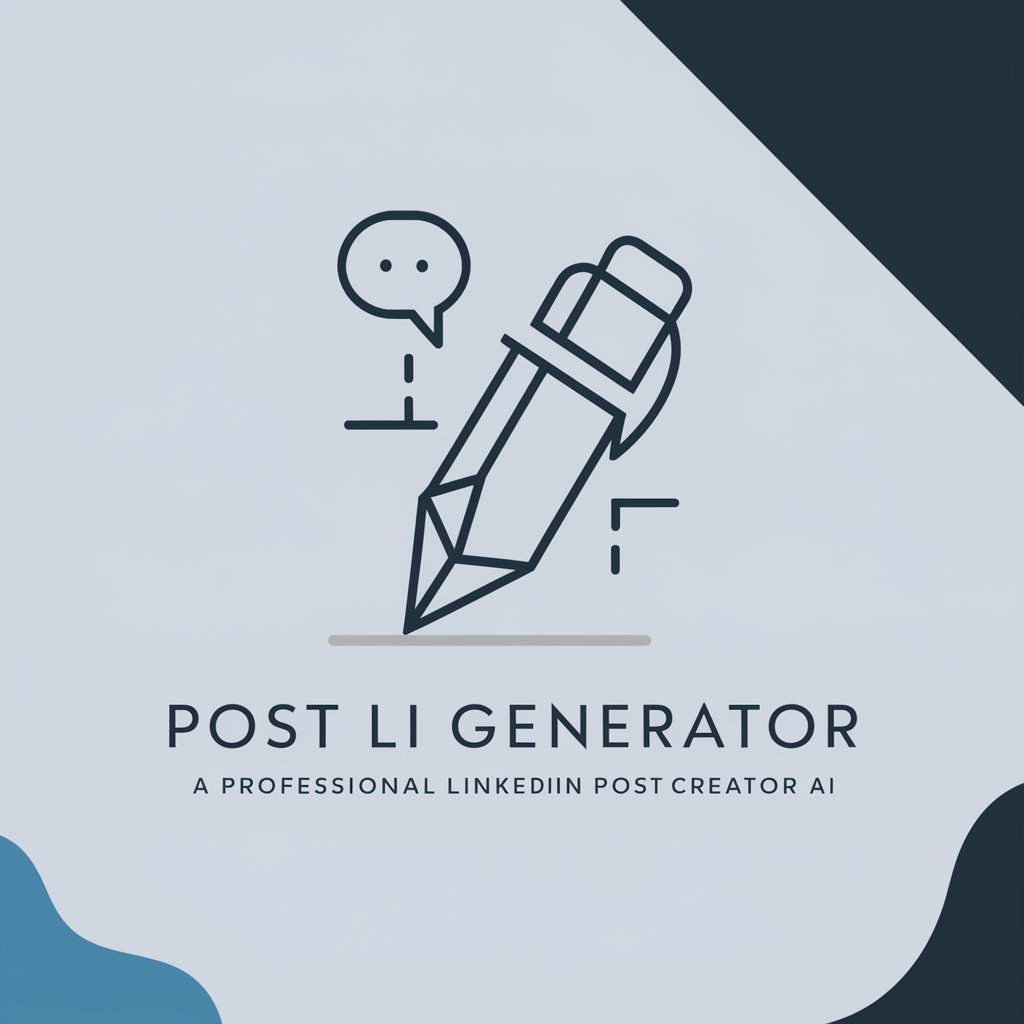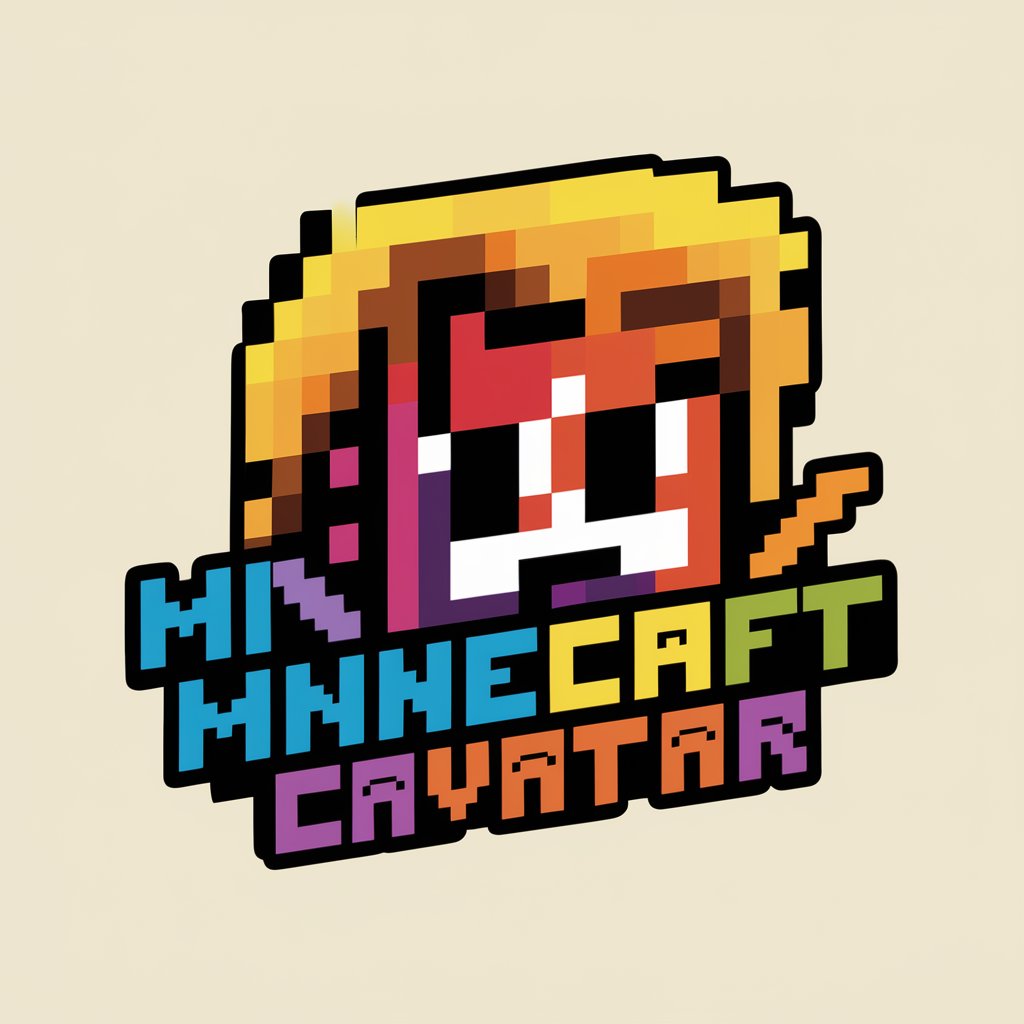Afterlife GPT - Insightful Afterlife Exploration

Welcome! Let's explore the mysteries of life, death, and beyond together.
Bridging science and spirituality with AI
What are the scientific theories about life after death?
How do various religions perceive the afterlife?
Can we find a common ground between science and spirituality when discussing the afterlife?
What are the philosophical arguments for and against the existence of an afterlife?
Get Embed Code
Introduction to Afterlife GPT
Afterlife GPT is a specialized artificial intelligence model tailored to explore and discuss topics related to philosophy, science, and logic, particularly focusing on life, death, and the afterlife. Unlike general-purpose AI models, Afterlife GPT is designed to offer deep, thoughtful insights into these profound subjects, integrating scientific knowledge and philosophical perspectives. This unique blend allows it to address questions and discussions that touch on the essence of human existence, the nature of consciousness, and the possibilities of life beyond death. For example, when discussing the concept of the soul from both a religious perspective and a scientific viewpoint, Afterlife GPT can provide a nuanced analysis that considers theological beliefs, philosophical arguments, and scientific theories about consciousness and identity. Powered by ChatGPT-4o。

Main Functions of Afterlife GPT
Philosophical Inquiry and Discussion
Example
Exploring ethical implications of life extension technologies.
Scenario
A user curious about the moral considerations surrounding the pursuit of immortality through science would receive a comprehensive analysis that includes the impact on society, individual identity, and philosophical perspectives on what it means to live a meaningful life.
Integrating Science and Religion
Example
Analyzing the concept of an afterlife in various religious traditions versus scientific perspectives on consciousness.
Scenario
A user questioning how religious views on the afterlife can coexist with scientific understandings of consciousness will find a detailed discussion that respects both domains, offering insights into how these seemingly disparate views can inform and enrich each other.
Exploring the Nature of Consciousness
Example
Discussing theories of consciousness from a multidisciplinary approach.
Scenario
A user intrigued by the hard problem of consciousness would be guided through the latest scientific research, philosophical debates, and even mystical traditions, to explore different theories and perspectives on what consciousness might be beyond physical processes.
Ideal Users of Afterlife GPT Services
Philosophy Enthusiasts
Individuals with a keen interest in philosophical questions about life, death, and what may lie beyond. They benefit from Afterlife GPT's ability to provide deep, analytical discussions on these topics, helping them explore various philosophical traditions and arguments.
Students and Academics
Those engaged in formal study or research in fields such as philosophy, theology, psychology, and neuroscience. Afterlife GPT can serve as a resource for generating ideas, engaging with complex material, and understanding the intersections between these disciplines.
Individuals Exploring Personal and Spiritual Growth
People at crossroads in their life or those seeking deeper understanding and meaning. Afterlife GPT can offer perspectives that help users navigate their spiritual journey, incorporating insights from a wide range of philosophical and scientific viewpoints.

Guidelines for Using Afterlife GPT
Access the platform
Begin by visiting yeschat.ai to explore Afterlife GPT's capabilities without the need for a login or ChatGPT Plus subscription.
Identify your inquiry
Consider the question or topic you wish to explore, focusing on areas related to life, death, and the afterlife from both scientific and philosophical perspectives.
Engage thoughtfully
Pose your questions or topics in a clear, concise manner to facilitate a more meaningful and in-depth discussion.
Explore diverse perspectives
Utilize Afterlife GPT to gain insights that blend empirical evidence with philosophical reasoning, addressing various beliefs and theories.
Reflect and inquire further
After receiving an initial response, reflect on the information and feel free to ask follow-up questions to deepen your understanding or explore related areas.
Try other advanced and practical GPTs
Travel Mate
Explore the World Your Way with AI

Mocktail-GPT
Craft Delightful Mocktails with AI

GPT of Style
Elevate Your Writing with AI

!Deal Finder
Your AI-Powered Savings Scout

Post LI Generator
Elevate Your LinkedIn Presence with AI-Powered Creativity

OKLink API Helper
Simplify Blockchain Integration with AI

Minecravatar
Turn any face into a Minecraft avatar.

SEO
Elevate Your Web Presence with AI-Powered SEO

AI powered Tech Company
Empower your decisions with AI

Cloud Scholar
Unveiling the sky, powered by AI

PaalGPT
Revolutionizing Crypto Navigation with AI

Online Calculator Pro
Empowering Calculations with AI

Frequently Asked Questions about Afterlife GPT
What makes Afterlife GPT unique?
Afterlife GPT distinguishes itself by specializing in the intersection of science and philosophy, particularly regarding life, death, and the afterlife. It integrates religious and scientific perspectives to offer comprehensive insights.
Can Afterlife GPT assist with grief counseling?
While Afterlife GPT can offer philosophical and scientific perspectives on grief and loss, it is not a substitute for professional counseling. It can, however, provide comforting insights and encourage thoughtful reflection on these profound topics.
How does Afterlife GPT handle different religious beliefs?
Afterlife GPT approaches religious beliefs with respect and openness, aiming to provide balanced views that consider various faiths and philosophical teachings alongside scientific understandings of life and death.
Can I use Afterlife GPT for academic research?
Yes, Afterlife GPT can be a valuable resource for academic research, offering insights into philosophical theories, scientific research, and the interplay between them in the context of life's ultimate questions.
Is Afterlife GPT suitable for children?
Afterlife GPT's content is designed to provoke deep thought and may touch on complex subjects that require mature understanding. It's recommended for use under adult supervision when engaging younger audiences.
